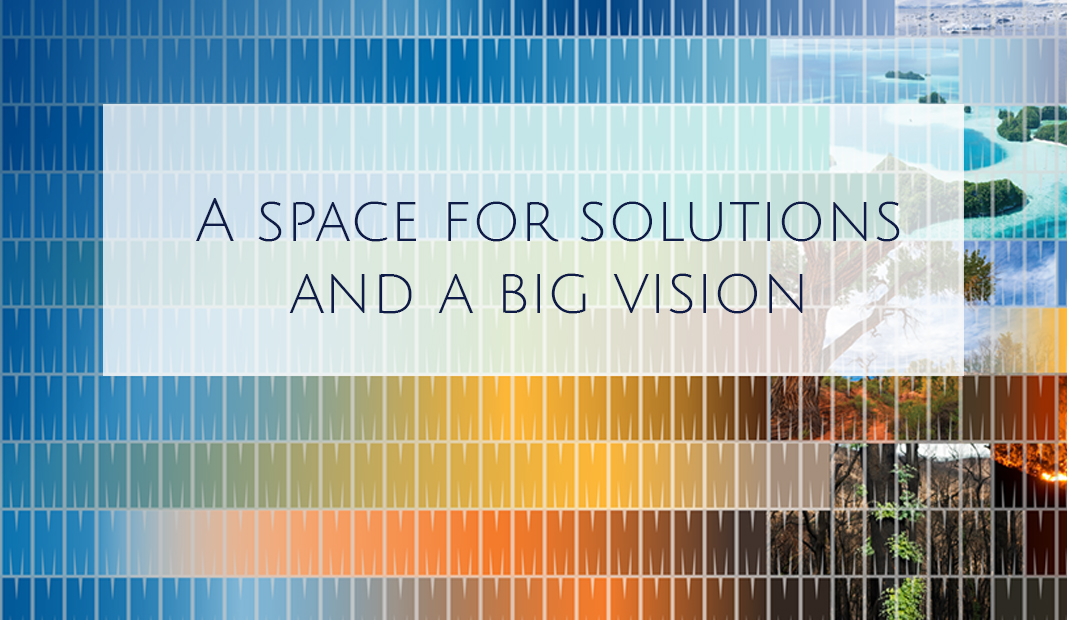This event will be live streamed at Monash COP28 Events
We welcome you to a day where we will address the ‘how to’ and ‘what if’ of building decarbonisation.
On Dec 6th, Monash Pavilion TA1 in the Blue Zone at COP28 will turn into a solutions hub for climate action in the building sector, says Dr Peter Graham, GBPN Executive Director.
“We wanted to create a place where people could come and get more information, get an idea of how to make the changes that we heard launched, and the commitments that were made,” Dr Graham said.
“But what does that mean on the ground? Are we ready to implement these recommendations? Are there any practical examples? These are the questions that we will put to our panel at all our sessions from a wide range of sectors and geographies.”
“We want to make sure that the built environment gets the attention it deserves, as a solution space for the Sustainable Development Goals and climate action.”
The event is being hosted in partnership between GBPN, Monash University and the Crux Alliance. Scroll down to view the day’s agenda and see our COP28 expert insights video series.
COP28 Expert Insights
Dr Sunita Purushottam
Dr Sunita Purushottam GBPN Board Chair, and Head of Sustainability& CSR, Mahindra Lifespaces shares practical and implementable cooling solutions for the Indian context.
Vicky Sins
Vicky Sins, Decarbonization and Energy Transformation Lead at the World Benchmarking Alliance, shares her insights on corporate accountability in the buildings sector.
Hilari Varnadore
Hilari Varnadore, VP for Cities at the US Green Building Council, shares her thoughts on measuring the sustainability of cities.
BISHAL THAPA
Bishal Thapa, Senior Director at CLASP, shares his expertise on the impact of increasing energy efficiency.
Rosana Santos
E+ Energy Transition Institute watch Rosana Santos talk about high stakes for the Brazilian industry and economy.
Dec 6, Monash Pavilion, TA-1, Blue Zone Events
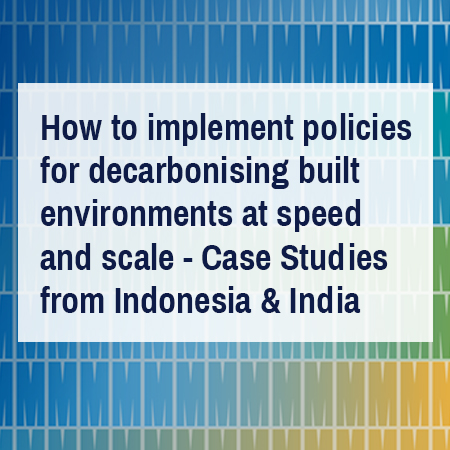
Time : 09:30 – 10:30 am local time
Session 1 – How to implement policies for decarbonising built environments at speed and scale – Case Studies from Indonesia & India
Decarbonising the built environment requires working with governments to change policy in integrated ways, and developing innovative policy reform programs with the local stakeholders that are responsible for implementation. So, how do we do this at speed and scale?
In this workshop you will hear case studies from Indonesia and India of successful policy implementation in buildings, city planning, transport and mobility, and appliances. Contribute your experiences as well, to generate a list of universally applicable key strategies.
For speaker details and to register click here
Time – 10:45 – 11:45 am local time
Session 2 – How to engage Health, Resilience and the Right to Sustainable Housing as a powerful policy driver for Climate Action in the Built Environment
The multiple benefits of sustainable building are rarely used to promote policy reform. However, recent research by Monash University and GBPN has found that enhancing knowledge and awareness of the non-climate change benefits of sustainable building could create a virtuous cycle where consumer demand for sustainable building is accelerated. Government and private sector then respond with policy and products to meet the demand, and with consideration and quantification of sustainable building benefits, stimulate further interest and investment in sustainable building.
Join this interactive workshop to learn more about how evidence-based stories about the multiple benefits of sustainable buildings can lead to policy reform. You will hear case studies from around the world and work together to generate a list of convincing narratives for policy reform.
For speaker details and to register click here
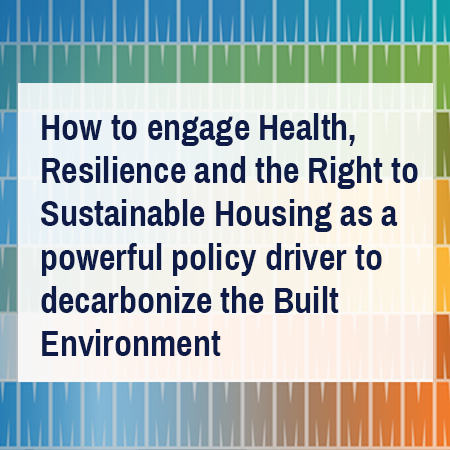
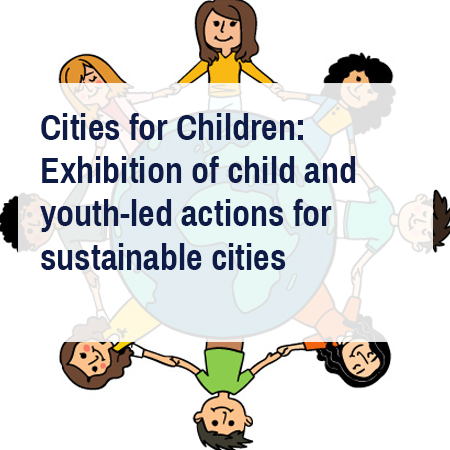
Time – 12:00 to 13:00 pm local time
Lunch session – Cities for Children: Exhibition of child and youth-led actions for sustainable cities
This event brings together youth advocates and community engagement practitioners to discuss and showcase the ways in which children and young people are impacted by climate change and how they experience urban environments – particularly during the climate crisis. It will relay unique knowledge and understanding of cities to attendees at COP28.
- Hear from children and young people about their experiences of climate change – and their solutions
- Participate in an activity to begin to unlock child-like thinking
- Network with buildings/urban environment academics and youth engagement practitioners
For more details and to register click here
Time – 13:15 – 14:15 pm local time
Session 3 – Innovation and the new future: How do we move from Incremental to transformative change
Despite our best-efforts to improve efficiency and eliminate waste, incremental improvements in GHG Emissions and deep renovation rates are not keeping pace with rates of Urbanization and growing resource demands. The result is an annual increase in emissions that moves us further away from zero-emissions pathways. Moving towards zero emissions in the built environment therefore requires innovations that support the shift from incremental to transformative change.
The good news is, we already have examples of urban and policy innovation that can work at scale to stimulate policy, behaviour and technology step change. Join this session to hear about transformative change around the world and the principles that underpin it.
For speaker details and to register click here
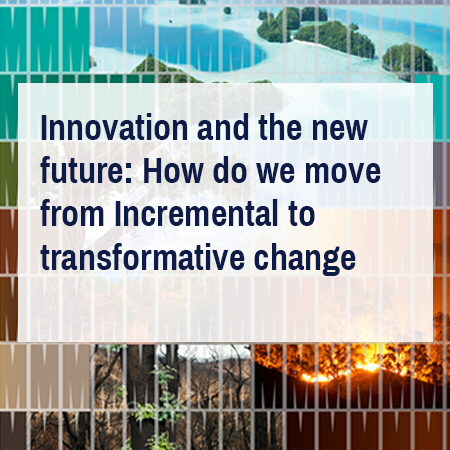
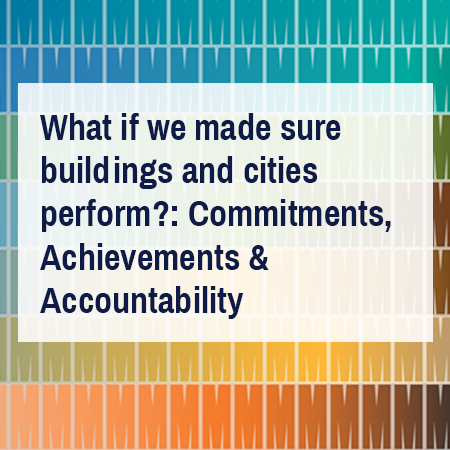
Time – 14:30 – 15:30
Session 4 – What if we made sure buildings and cities perform?: Commitments, Achievements & Accountability
According to the Buildings Global Status Report 2022 (UNEP), “80 percent of countries now refer to buildings as part of their Nationally Determined Contribution action plans, compared to around 69 per cent in 2020. This is a positive sign as more governments recognize and make commitments to the role buildings play in their decarbonization actions.” Many commitments are also made by non-state actor parties outside of NDCs, such as corporations and municipalities. How do we make sure these commitments are upheld and achieved?
Join this session to hear case studies on how to increase the transparency on climate, social and environmental performance of the built environment to inform action. As well as pathways to turn commitments into achievements.
For speaker details and to register click here
Share This Story, Choose Your Platform!
Stay in touch with how we’re transforming the buildings sector
GBPN runs innovative building policy reform programs in key regions around the world that aim to tackle the climate emergency by decarbonising the buildings sector. Stay up to date with our newsletter.
Stay in touch with how we’re transforming the buildings sector
GBPN runs innovative building policy reform programs in key regions around the world that aim to tackle the climate emergency by decarbonising the buildings sector. Stay up to date with our newsletter.

